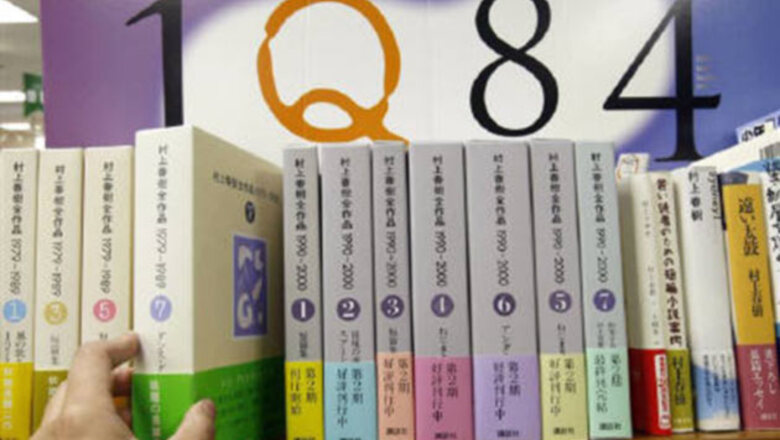
views
Tokyo: With all its book lovers and gadget and technology buffs, Japan would seem to have the makings of a large market for electronic books.
If only the country's publishers were ready to shift the $20 billion book market into the digital age.
Even as Apple prepares to launch its iPad in Japan this month and Amazon.com and Sony mull selling Japanese language e-readers, the publishing industry is circling the wagons to protect the paperback business model.
This loose but potentially influential alliance of 31 publishers is not out to stop digital distribution, but its attempts to control it could slow growth and hinder the ability of Amazon.com and others to make money in Japan.
Big publishers are wary of changing a decades-old business model under which they set the retail prices and discourage discounting. This helps put a floor under their profits and, they argue, protects the country's culture.
E-book service providers are likely to charge less for buying electronic titles, as they do in the United States, and this could lower prices of paperbacks and dent profits.
"If we can't maintain paper book publishing, we are not going to cooperate," said Mitsuyoshi Hosojima, a director of the Electric Book Publishers Association of Japan, which was set up last month to address the e-book threat.
"And if we don't supply content, they won't be able to sell e-books," Hosojima said.
Kodansha Inc, Shogakkan Inc, Shueisha Inc, Japan's top three publishers, are leading members of the association.
A lack of content killed the first attempt to create a market seven years ago when Sony and Panasonic Corp launched e-readers only to pull them from shelves after a few lacklustre years. Sony offered less than 10,000 titles at the time.
Hosojima said publishers are willing to supply books electronically, as long as they can ensure they will profit from the shift. Their revenues are already dwindling with the paper book market having shrunk by a quarter since peaking in 1996 as consumers spend more time on the Internet and mobile phones.
Japan's market for e-book content totalled 53 billion yen ($569 million) in 2009, according to Fuji Chimera Research Institute in Tokyo.
But nearly all of which was accounted for by comic books, which are easy to read on mobile phones' small displays.
In Japan, comics are ubiquitous, read by young and old alike, with genres across the entire spectrum from fantasy and pornography to archaeology, cooking, pre-school and business strategy.
E-book readers are not available in Japanese and there is virtually no market to speak of for electronic novels such as the now booming industry in the United States.
As Amazon, Sony and Apple, and NEC Corp look to enter the Japan market, Fuji Chimera estimates annual demand for e-reader devices will grow to 41 billion yen while revenues from electronic book content will double to 87 billion yen by 2014.
"The arrival of terminals with bigger displays such as the iPad will stimulate demand of electronic paperbacks," said Toshihiro Takagi, a researcher at Internet Media Research Institute. "Japan's e-book content market is still small compared with the physical book market. There is a lot of space to grow."
Tough talk
Amazon, whose Kindle book reader was the most-purchased gift in the company's history last Christmas season, said many Japanese are buying English e-books from its US Web site, indicating there would be strong demand of a Japanese device.
"We have the impression we can expect further demand if we start selling Japanese language e-books," said Amazon Japan spokeswoman Misao Konishi, adding that Amazon was in talks with publishers but declined to give details.
Sony, which offers 150,000 book titles for its e-reader in the United States, is also talking with publishers. Apple declined comment.
There is no shortage of potential content in Japan. The publishing industry churns out nearly 80,000 new titles a year, or at a per capita rate one quarter higher than the US.
"E-books would be convenient for people like me who read several books at a time and often go on business trips. I may buy a device if they sell as many books as I want to read," said Kenichi Yamauchi, a 39-year old trading house employee in Tokyo.
The key is getting popular new novels, such as Haruki Murakami's best-seller "IQ84", into electronic form.
Some publishers see no choice but to embrace the shift to new technologies.
"If Amazon asks us to provide digital data now, we are happy to do so immediately," said Shin Niina, a managing director at Kadokawa Shoten Publishing, which started digitalizing its books two years ago and is a member of the industry association.
"Electric vehicles could change the landscape of the car industry. The same may happen in the publishing industry with the arrival of an e-book era. This could be a chance for a mid-size publisher like us."


















Comments
0 comment